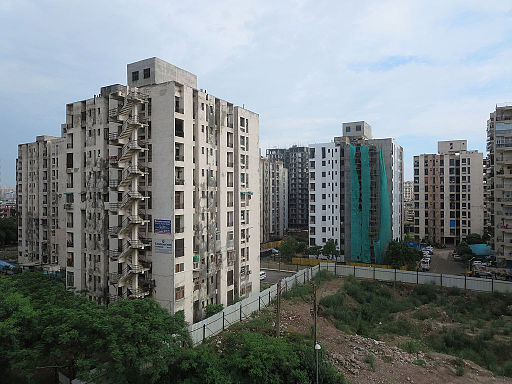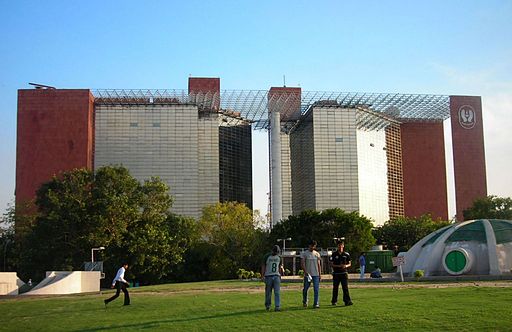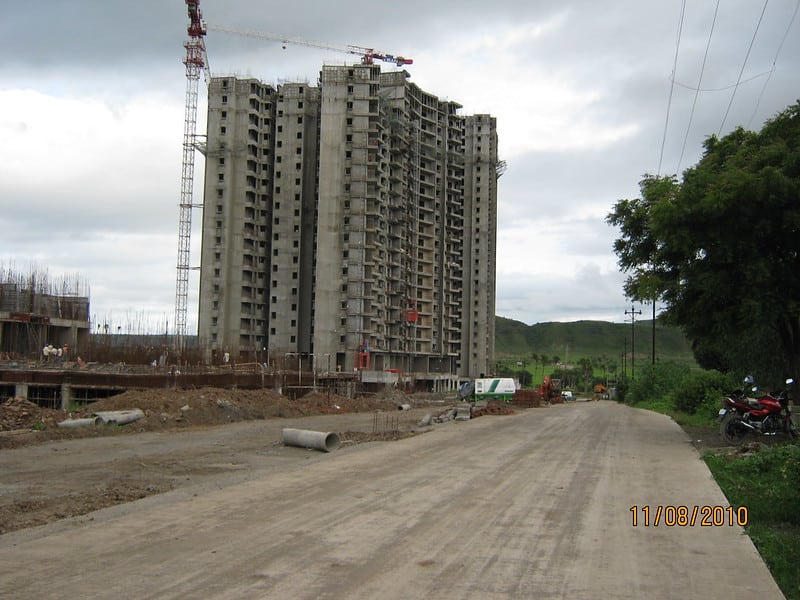The real estate market in India has seen a remarkable surge in recent years, with cities like Delhi and Bangalore emerging as hotspots for property investment.
As the country’s economy continues to grow and urbanization takes center stage, more and more investors are drawn to the potential of the Indian real estate market.
From the bustling streets of Delhi to the tech hub of Bangalore, this vast and diverse country offers a range of opportunities for those looking to dip their toes into the real estate world.
In this article, we will delve into the intricacies of the real estate market in India, exploring the factors that make Delhi and Bangalore particularly attractive destinations for property buyers and investors.
Join us on this journey as we uncover the hidden gems and untapped potential that lie within the Indian real estate market.
Table of Contents
Factors Influencing the Real Estate Market in India

- The real estate market in India is influenced by a variety of factors. One of the primary drivers of growth is the country’s rapid urbanization.
- As more and more people migrate to cities in search of better job opportunities and a higher standard of living, the demand for housing and commercial spaces continues to rise.
- Additionally, the government’s initiatives to promote affordable housing and ease of doing business have also contributed to the growth of the real estate sector.
- The introduction of the Real Estate (Regulation and Development) Act, 2016 (RERA) has brought transparency and accountability to the industry, making it more attractive to both domestic and international investors.
- Another key factor shaping the real estate market in India is the availability of financing options.
- Banks and financial institutions have been proactive in extending credit to homebuyers and developers, making it easier for individuals to purchase properties and for developers to fund their projects.
- The introduction of schemes like Pradhan Mantri Awas Yojana (PMAY) has further incentivized homebuyers, especially in the affordable housing segment.
Exploring the Real Estate Market in Delhi

- Delhi, the capital city of India, is a thriving metropolis with a rich cultural heritage and a vibrant real estate market.
- The city offers a range of residential and commercial properties, catering to buyers from different income brackets.
- One of the key factors driving the real estate market in Delhi is the presence of a robust infrastructure network.
- The city is well-connected through various modes of transportation, including an extensive metro network, making it easy for people to commute.
- Additionally, the availability of social infrastructure such as schools, hospitals, and shopping malls adds to the appeal of the city.
- In recent years, Delhi has witnessed significant growth in the affordable housing segment.
- The government’s focus on providing housing for all has led to the development of several affordable housing projects in the city.
- These projects not only cater to the needs of the low-income population but also provide attractive investment opportunities for buyers.
Key Trends and Opportunities in the Delhi Real Estate Market

- The real estate market in Delhi is characterized by several key trends and opportunities.
- One of the notable trends is the growing demand for co-working spaces.
- With the rise of startups and the gig economy, there has been an increased demand for flexible and collaborative workspaces.
- The city has witnessed a surge in the number of co-working spaces, offering entrepreneurs and freelancers a conducive environment to work and network.
- Another trend in the Delhi real estate market is the emergence of smart homes.
- With advancements in technology, homebuyers are increasingly looking for properties that offer smart features such as home automation, energy-efficient appliances, and remote-controlled security systems.
- Developers are incorporating these features into their projects to meet the changing demands of buyers.
Exploring the Real Estate Market in Bangalore

- Bangalore, often referred to as the Silicon Valley of India, is a major hub for the information technology and startup sectors.
- The city’s thriving tech ecosystem has fueled the growth of the real estate market, with demand for residential and commercial properties on the rise.
- Bangalore offers a range of options for homebuyers, from affordable housing projects on the outskirts to luxury apartments in prime locations.
- One of the key factors that make Bangalore an attractive destination for property buyers and investors is the presence of top-notch educational institutions and healthcare facilities.
- The city is home to several prestigious schools, colleges, and hospitals, making it an ideal choice for families.
- The availability of social infrastructure, coupled with a pleasant climate, adds to the city’s appeal.
Key Trends and Opportunities in the Bangalore Real Estate Market

- The real estate market in Bangalore is characterized by several key trends and opportunities.
- One such trend is the growing demand for integrated townships. Integrated townships offer a mix of residential, commercial, and recreational spaces, providing residents with a self-sufficient and convenient lifestyle.
- These townships are designed to cater to the needs of modern families, with amenities such as parks, shopping complexes, and sports facilities.
- Another trend in the Bangalore real estate market is the rise of sustainable and eco-friendly projects.
- With increased awareness about environmental issues, homebuyers are actively seeking properties that are energy-efficient and environmentally conscious.
- Developers in Bangalore are incorporating green building practices into their projects, promoting sustainability and reducing the carbon footprint.
Comparison of the Delhi and Bangalore Real Estate Markets

- While both Delhi and Bangalore are attractive destinations for property buyers and investors, there are some key differences between the two markets.
- Delhi, being the capital city, offers a range of investment opportunities across different segments, from affordable housing to luxury properties.
- The city’s robust infrastructure and social amenities make it an ideal choice for families and working professionals.
- On the other hand, Bangalore’s real estate market is driven by the thriving IT and startup sectors.
- The city offers a conducive environment for entrepreneurs and tech professionals, with a range of job opportunities and a vibrant social scene.
- The presence of world-class educational institutions and healthcare facilities adds to the city’s appeal.
Investment Strategies in the Indian Real Estate Market

- Investing in the Indian real estate market requires a well-thought-out strategy to maximize returns and mitigate risks.
- One of the popular investment strategies is to focus on emerging markets and upcoming areas.
- These areas typically offer properties at a lower price point, with the potential for significant appreciation in the future.
- Investors can take advantage of the growth potential by investing early in these markets.
- Another investment strategy is to diversify the portfolio by investing in different segments of the real estate market.
- By spreading the investments across residential, commercial, and retail properties, investors can minimize the risk of exposure to a single segment.
- This diversification strategy allows investors to capitalize on the strengths of different segments and hedge against market fluctuations.
Challenges and Risks in the Indian Real Estate Market

- While the Indian real estate market offers lucrative opportunities, it is not without its challenges and risks.
- One of the major challenges is the regulatory environment. The real estate sector in India is governed by a complex web of regulations and laws, which can be cumbersome for investors to navigate.
- It is important for investors to have a thorough understanding of the regulatory framework and seek professional advice to ensure compliance.
- Another risk in the Indian real estate market is the possibility of delays in project completion.
- Construction delays are not uncommon in India due to various factors such as regulatory approvals, funding issues, and labor shortages.
- Investors should carefully assess the track record of developers and choose projects that have a proven track record of timely completion.
Conclusion: The Future of the Real Estate Market in India

- The real estate market in India is poised for continued growth and offers a range of opportunities for property buyers and investors.
- With the government’s focus on affordable housing and ease of doing business, coupled with the country’s rapid urbanization, the real estate sector is expected to flourish in the coming years.
- However, it is important for investors to conduct thorough research, understand the market dynamics, and adopt a long-term perspective to make informed investment decisions.
- The Indian real estate market is full of potential, and those who are willing to explore and embrace the opportunities it offers can reap significant rewards.
- In conclusion, the real estate market in India is a dynamic and ever-evolving sector that presents exciting prospects for investors.
- From the bustling streets of Delhi to the tech hub of Bangalore, this vast country offers a range of investment opportunities.
- By understanding the factors that influence the market, exploring the trends and opportunities in specific cities, and adopting the right investment strategies, investors can navigate the Indian real estate market with confidence.
- It is an exciting time to be a part of this flourishing sector, and with the right approach, the potential for success is limitless.










